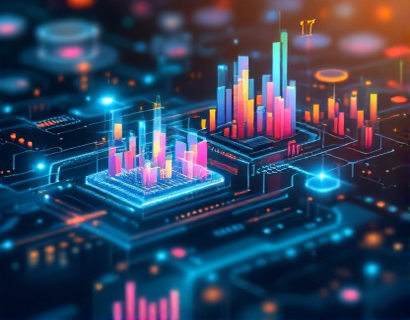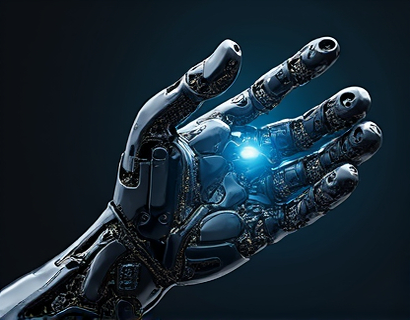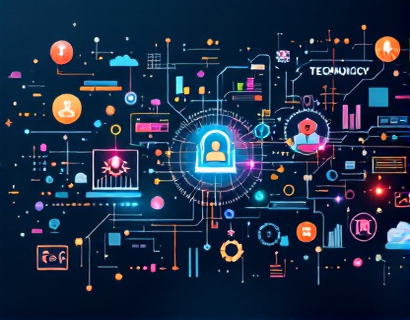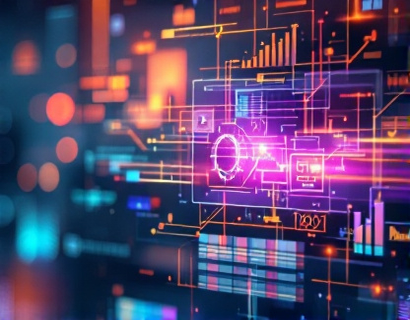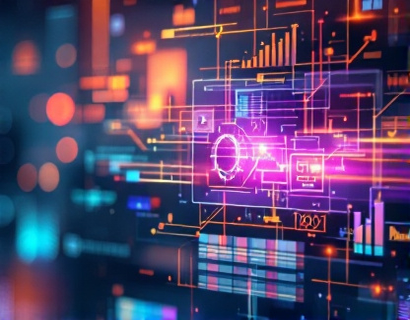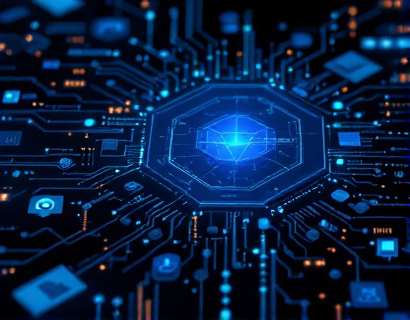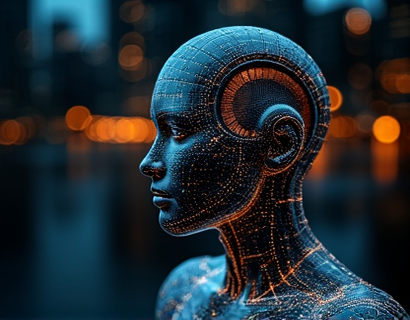Crypto AI Synergy: Revolutionizing Digital Solutions for the Next Generation
The intersection of cryptocurrency and artificial intelligence (AI) is giving rise to a new era of digital solutions that are poised to transform user interactions with apps and services. This synergy, often referred to as Crypto AI, is not just a buzzword but a powerful combination that is driving innovation and efficiency in the tech industry. As we explore this fascinating domain, it's essential to understand how these technologies complement each other and the profound impact they are having on the future of digital experiences.
The concept of Crypto AI involves leveraging AI algorithms and machine learning models on blockchain networks or using blockchain data to enhance the capabilities of AI systems. This integration brings together the transparency, security, and decentralization of cryptocurrency with the intelligence and adaptability of AI. The result is a robust framework that can process vast amounts of data, learn from it, and make informed decisions in real-time, all while maintaining a high level of security and trust.
Advancements in Tech-Driven Applications
One of the most significant advancements in the Crypto AI space is the development of decentralized applications (dApps) that utilize AI to provide superior user experiences. These dApps are built on blockchain platforms and can operate without central authority, intermediaries, or single points of failure. By incorporating AI, these applications can offer personalized services, predictive analytics, and automated decision-making processes.
For instance, in the realm of finance, AI-driven trading bots powered by blockchain technology can execute trades with minimal latency and maximum transparency. These bots can analyze market trends, predict price movements, and execute transactions autonomously, all while ensuring that the data and transactions are immutable and verifiable. This not only enhances the efficiency of trading but also reduces the risk of fraud and manipulation.
Enhanced User Interactions
The integration of Crypto AI is revolutionizing how users interact with digital services. Traditional apps often rely on centralized servers to process user data, which can lead to privacy concerns and slower response times. In contrast, Crypto AI-powered applications can leverage decentralized networks to process data more efficiently and securely. Users can have greater control over their data, knowing that it is stored on a blockchain and accessed only with their permission.
Moreover, AI-driven chatbots and virtual assistants are becoming more sophisticated, thanks to Crypto AI. These AI entities can understand natural language, learn from user interactions, and provide personalized recommendations. For example, a Crypto AI-powered virtual assistant can manage a user's digital assets, monitor market trends, and offer tailored investment strategies, all through seamless and secure interactions.
Security and Trust
Security is a paramount concern in the digital world, and Crypto AI addresses this issue head-on. The use of blockchain technology ensures that data is tamper-proof and transparent, while AI algorithms can detect and mitigate potential security threats in real-time. This dual-layer approach provides a robust defense against cyber attacks and data breaches.
Additionally, the decentralized nature of Crypto AI reduces the risk of single points of failure. Since there is no central authority controlling the data, the system is less vulnerable to hacks and manipulations. Users can trust that their interactions with digital services are secure and that their data is handled with the utmost care.
Use Cases Across Industries
The potential applications of Crypto AI extend far beyond the financial sector. In healthcare, AI algorithms can analyze medical data stored on a blockchain to identify patterns and predict patient outcomes with high accuracy. This can lead to more personalized treatment plans and improved patient care. Moreover, the immutable nature of blockchain ensures that patient data remains confidential and secure.
In the supply chain industry, Crypto AI can enhance transparency and efficiency. By tracking products from origin to destination on a blockchain, companies can ensure the authenticity and quality of goods. AI can optimize logistics, predict demand, and automate inventory management, reducing costs and improving service levels.
The real estate sector is another area where Crypto AI can make a significant impact. Smart contracts on blockchain can automate property transactions, reducing the need for intermediaries and speeding up the process. AI can analyze market data to provide insights on property values, trends, and investment opportunities, helping both buyers and sellers make informed decisions.
Challenges and Considerations
Despite the numerous benefits, the Crypto AI space is not without its challenges. One of the primary concerns is the regulatory environment. As this field is relatively new, regulations are still evolving, and compliance can be complex. Companies and developers must stay informed about the legal landscape to ensure their applications meet all necessary requirements.
Another challenge is the technical complexity involved in integrating AI with blockchain technology. Developing scalable and efficient systems that can handle large volumes of data while maintaining low latency is a significant engineering feat. Continuous research and development are essential to overcome these technical hurdles.
Furthermore, the energy consumption associated with blockchain, particularly proof-of-work (PoW) systems, has raised environmental concerns. The shift towards more sustainable consensus mechanisms, such as proof-of-stake (PoS), is crucial for the long-term viability of Crypto AI applications.
Future Prospects
The future of Crypto AI looks promising, with ongoing advancements expected to further enhance the capabilities of digital solutions. As AI algorithms become more sophisticated and blockchain technology more efficient, the potential applications will continue to expand. Here are some key areas to watch:
- Enhanced Personalization: AI will enable more personalized and intuitive user experiences, with applications that can adapt to individual preferences and behaviors.
- Decentralized AI: The development of decentralized AI models that can train and operate on a blockchain network will enhance privacy and security, allowing for more collaborative and trustless AI systems.
- Quantum AI: The emergence of quantum computing could revolutionize AI by significantly boosting computational power, enabling more complex and efficient AI models.
- Interoperability: Standards and protocols that facilitate seamless interaction between different blockchain networks and AI systems will be crucial for the widespread adoption of Crypto AI solutions.
As the Crypto AI ecosystem matures, we can expect to see more innovative applications across various industries, driving a new wave of digital transformation. The synergy between cryptocurrency and AI is not just a technological trend but a fundamental shift in how we design and interact with digital services.
Conclusion
The convergence of cryptocurrency and AI is paving the way for a new generation of digital solutions that are more secure, efficient, and user-centric. By leveraging the strengths of both technologies, we can create applications that not only enhance user experiences but also address some of the most pressing challenges in the digital world. As tech enthusiasts and professionals, staying informed about the latest developments in Crypto AI is crucial for harnessing its potential and contributing to the next wave of innovation.






